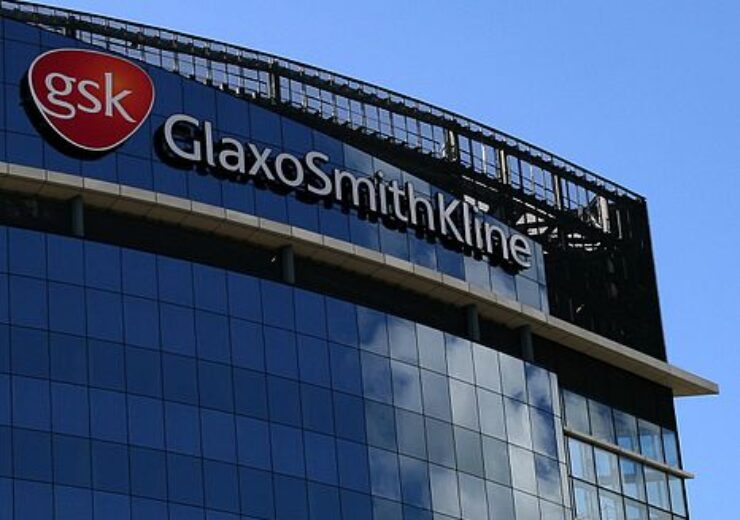GSK said that the FDA approval makes Nucala the first and only approved biologic for the treatment of patients with eosinophil-driven disease in the US

GlaxoSmithKline head office, London. (Credit: Ian Wilson/Wikipedia.)
GlaxoSmithKline (GSK) has received the US Food and Drug Administration (FDA) approval for Nucala (mepolizumab) to treat a type of Hypereosinophilic Syndrome (HES).
The FDA indicated Nucala to treat adult and paediatric patients aged 12 years and above with HES for more than six months without an identifiable non-haematologic secondary cause.
HES is a rare and under-diagnosed disorder, characterised by overproduction of eosinophils, with patients having eosinophil levels more than three times than normal. Preventing the overproduction of eosinophils would help patients with eosinophil-driven diseases, including HES.
GSK said that with the FDA approval, Nucala becomes the first and only targeted biologic approved in the US for the treatment of patients with the eosinophil-driven disease.
GSK chief scientific officer and R&D president Hal Barron said: “HES is a complex, life-threatening condition that impacts nearly 5,000 patients in the US.
“Today’s approval gives these patients access to biologic treatment for the first time and demonstrates our commitment to maximising Nucala’s impact on eosinophil-driven diseases.”
The FDA approval for Nucala is based on data from the clinical development programme
The US regulatory agency has approved the drug following a priority review of data from a clinical development programme, including positive results from a phase 3 study.
The phase 3 study is a randomised, double-blind, placebo-controlled clinical trial that evaluated the efficacy and safety of Nucala for four weeks, compared to placebo, in 108 patients, aged 12 years and older with uncontrolled HES.
Uncontrolled HES was defined by at least two HES flares, a worsening of symptoms or eosinophil threshold that needs an escalation in therapy, in the past 12 months and a more than 1000 cells/µL blood eosinophil count at the screening.
In the clinical study, Nucala resulted in a 50% reduction in patients experiencing HES flare compared to placebo, when added to standard of care treatment.
The company warned that Nucala is not meant to be administered to patients with hypersensitivity to mepolizumab or excipients in the formulation in the past.
American Partnership for Eosinophilic Disorders (APFED) executive director Mary Jo Strobel said: “HES can take many years to diagnose and most patients go through a long and frustrating journey that continues even after the diagnosis is confirmed as treatment roadmaps are often unclear and limited. APFED welcomes this approval of Nucala for HES as it gives our community hope.”
